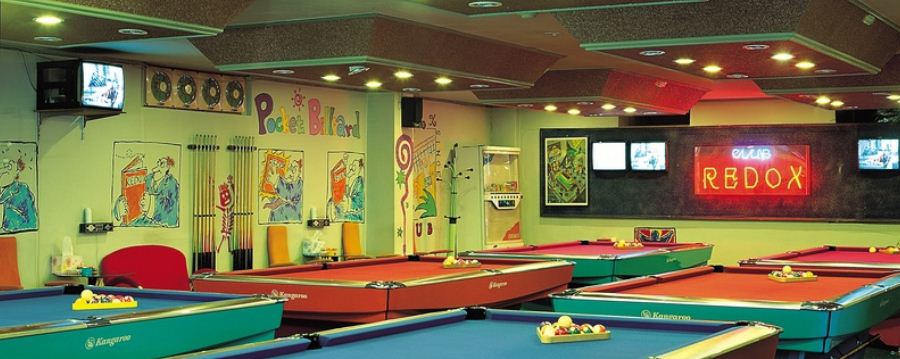16 Ways How to Start a Profitable Frozen Food Business

Frozen foods are a segment of the food industry that is relatively new and have a lot of potential. With a growing demand for frozen foods, a vast potential market awaits tapping. However, like any business, starting a commercial frozen foods business requires careful planning and execution.
16 Ways How to Start a Profitable Frozen Food Business
Starting a frozen food business requires thorough market research, solid business plans, and equipment. Companies must invest in high-quality equipment and ensure that employees are adequately trained to operate and maintain it while adhering to safety protocols.
Here we will point out some vital 25 tips for starting a successful frozen food business in this blog post.
1. Conduct a Market Research
Most people, especially in the first few stages of the frozen food business, need to consider market research before starting a frozen food business. However, you should conduct market research to understand your target market and competition.
You can conduct surveys or visits to view the frozen foods industry to understand demand and potential market size. This will help you identify market gaps and develop a unique selling proposition that sets you apart.
2. Develop a Business Plan
Frozen food businesses can use the right equipment and processes to produce high-quality products that meet consumer demand and contribute to a successful and profitable business. It is perfect to have a business plan at hand prepared for your frozen foods business. This plan should include your marketing strategies, product list, company profile, and financial projections.
3. Invest in high-quality equipment
The equipment used in a frozen foods business is designed to efficiently and effectively produce, store, and transport frozen food products while maintaining their quality and safety. These machines are constructed using various components, including food processing equipment, refrigeration systems, conveyor belts, packaging machines, and many more.
Businesses must invest in high-quality equipment and regularly maintain and upgrade it to ensure optimal performance and minimize downtime. The equipment used for making frozen foods you are about to source will depend on some standard pieces of equipment used in a frozen foods business:
(a). Blast Freezer:
The blast freezer is revolutionizing the frozen food business industry. With its innovative technology, this freezer can rapidly freeze and store food products at temperatures lower than regular freezers. This allows for more efficient storage of frozen foods and longer shelf life. In addition, blast freezers are energy efficient, making them an economically viable option for businesses. Thus, these freezers are becoming increasingly popular among food businesses looking to maximize their storage capabilities and reduce costs.
(b). Commercial Ovens:
Commercial ovens are used in the production of many frozen foods right now. This product currently has a massive market, and the demand is increasing. The goods that are produced in ovens vary according to the product.
Commercial ovens are essential for any frozen foods business as they allow for efficient and consistent cooking of a wide range of frozen foods. Various commercial ovens are available on the market, each designed for different needs.
From convection ovens to deck ovens and blast chillers, the proper commercial range can help create delicious frozen food products with minimal effort and maximum efficiency whether baking frozen pizzas, heating frozen appetizers, or cooking frozen entrees, commercial ovens can help you do the job quickly and consistently.
(c). Food Processor:
Food processors are a must-have item for any frozen foods business. They offer an array of functions and features to help prepare, cook, and pack frozen foods quickly and efficiently. Their versatility makes them essential in the production of quality frozen food products. With their ability to chop, blend, mix, knead, grind, and more – food processors are the perfect tool to save you time while producing high-quality products.
(d). Packaging Machine:
Frozen food is already a booming business. However, the cost of packaging is a considerable hurdle for frozen food manufacturers. Packaging machines ensure food quality at a low price and with less waste. This can help businesses save money on packaging materials, reduce their carbon footprint and improve their employee health.
With the right packaging equipment, companies can provide their customers with high-quality frozen food products that are safe for consumption. Various packaging machines are available, including shrink-wrapping devices, bagging machines, and sealing machines. Additionally, these machines must be able to handle extreme temperatures and humidity levels to maintain the integrity of the product.
(e). Mixer:
Mixer is a high-tech food mixer (freezer) designed to spin, mix, and cook food in the freezer without disturbing its temperature. It is the most convenient way of mixing frozen foods.
(f). Slicer:
Slicer is an excellent tool for frozen foods businesses as it can help in slicing different types of frozen foods quickly and efficiently, saving time and increasing productivity. Slicers can cut frozen meats, cheeses, vegetables, and fruits, commonly used in frozen food products.
Using a slicer for the frozen foods business can also ensure consistent and uniform slices, vital for maintaining the quality of frozen food products. This can help in attracting more customers and building a loyal customer base.
(g). Scales:
Scales are a valuable tool for any frozen foods business. They can be used to weigh and portion frozen foods accurately, which is crucial for maintaining consistency in portion sizes and ensuring that customers get the correct amount per purchase.
(h). Refrigeration Units:
Refrigeration units are indispensable to any food-related business. They provide a safe and efficient means of storing frozen foods at the optimal temperature to maintain freshness and quality. A refrigeration unit is suitable for every need, from walk-in freezers to reach-in fridges. With the help of modern technology, these units are becoming more energy-efficient and cost-effective, helping businesses save money in the long run.
Several types of refrigeration units are available, such as reach-in freezers, blast chillers, and walk-in coolers. Each class offers unique benefits for frozen food businesses looking for the most efficient and cost-effective solution.
(i). Filling Machines:
Using a filling machine for frozen foods can also help reduce waste and increase profits by minimizing the amount of product wasted due to overfilling or underfilling. Filling machines are precision equipment that will accurately fill containers with the desired amount of output, which is essential for maintaining consistency and quality in frozen food products. Additionally, filling machines are designed to handle different types of packaging materials, which can provide more flexibility in packaging options.
(j). Freezer Shelving:
Nowadays, people buy frozen food items online. But many freeze at home and bring to the market too late. This means the product is not fresh and ready to use when bought. Thus, they have to be thawed before use and then resold again. Freezer Shelving is a must-have for this business. For commercial operation, it can't be installed at home. It may be difficult to install because of a lack of skilled installation staff or the high installation cost.
In outlets, freezer shelving can also be used to display frozen products to customers in an attractive and organized way. By arranging products visually appealingly, customers are more likely to be drawn to the products and make a purchase. Moreover, the product requires a professional installation service which takes time so that it doesn't get damaged or damaged during usage, just like other products in the market business.
(k). Labeling Machine:
A labeling machine labels frozen food products with important information such as product name, ingredients, nutritional information, and expiration date.
Labeling equipment plays a vital role in the frozen food business. It helps to accurately identify and track products, allowing companies to stay organized and efficient. Various labeling machines are available on the market, from basic hand-held label printers to automatic labelers that can include barcodes or RFID tags for easy product tracking. Whether you need labels for cases or individual items, this equipment can help your frozen food business run smoothly and efficiently.
(l). Water Treatment System:
A water treatment system is essential for maintaining the safety and quality of frozen food products. This system filters and purifies the water used in production, which helps remove contaminants, bacteria, and other pollutants. Investing in this vital equipment will pay off since a higher-quality product comes with fewer harmful substances that customers can enjoy.
(m). Pallet Jacks:
Pallet jacks are an invaluable tool for the food industry, enabling the efficient movement of pallets of frozen products from one production area to another. This reduces manual labor and minimizes the risk of product damage during transportation. With their quick maneuverability and low cost, pallet jacks can help streamline operations while ensuring the safety and quality of food products.
(n). Heat Sealer:
Heat Sealer is the perfect solution for keeping frozen foods fresh, delicious, and long-lasting. This innovative product uses heat-sealing technology to lock in flavor and preserve food for up to 12 months. Heat sealer can save time and energy on meal preparation. It can also eliminate potential food waste with its airtight seal. Anytime you're looking for a product to keep your frozen foods fresh and delicious, look no further than the Heat Sealer!
(o). Metal Detectors:
Metal detectors are one of the must-have essential requirements to have in the food industry. They are used to detect any metal contaminants that may be present in frozen food products. Doing this can help ensure the final product's safety and prevent potential consumer harm. By using these detectors, manufacturers can quickly and easily identify any metal particles that may have entered their production process, allowing them to take preventative measures and keep their food products safe for consumption.
After selecting the equipment you may use in your commercial frozen food business, you can continue with the rest of the setup plans below.
4. Choose a Location
Live in a cold climate? You are going to start a frozen foods business. The first step is choosing the location you want to operate from. Then consider the types of stores that will work for your business. You must have sufficient parking and access to loading docks if you use a warehouse.
A location with high foot traffic and easy accessibility is ideal, such as a strip mall or a busy street. You must ensure the site has adequate space for storing, displaying, and preparing frozen foods.
5. Choose Your Products
Once you have conducted market research and developed an ideal business plan, it is time to choose the products you will sell. Consider what types of frozen foods are in high demand in your area and what products you want to specialize in.
The type of equipment you will source may depend if you sell various frozen foods or focus on a specific niche, such as vegan or gluten-free products.
Once you have reviewed the right equipment for your frozen food business, you can move to the next plan below.
6. Find a Supplier
Compare prices from different suppliers before choosing the best one. Remember, you want a product that will last long enough to make the most money.
7. Source Quality Products
Frozen foods are an essential part of a health-conscious lifestyle. They provide an excellent option for those on the go and also those who want to lose weight and maintain their health.
However, many frozen foods are of low quality, or these products are bought from unreliable sources and damaged due to poor storage practices. It will help if you consider packaging and labeling your products, as this can affect their appeal to customers.
8. Invest in Marketing and Branding
A unique brand identity is crucial to branding your frozen foods business. It helps the brand stand out from competitors and becomes a point of discussion among your customers. You can invest in advertising, social media marketing, and promotions to create awareness and attract customers.
In today's digital age, having a solid online presence is essential for any business. This includes creating a website, social media profiles, and other digital marketing efforts to reach potential customers online. Consider offering discounts and promotions to encourage repeat business.
You can also use platforms like e-commerce marketplaces or online stores to sell your products. By developing a robust online presence, you can expand your retail reach and grow your customer base within your area.
Marketing and advertising are essential for promoting your frozen foods business and attracting new customers. DevelopingIt would help if you could partner with or outsource your marketing activities to promote your products. A comprehensive marketing plan that includes offline and online marketing strategies is necessary. could with outsource
9. Obtain Permits and Licenses
You must obtain permits and licenses to operate your frozen foods business legally. The requirements vary depending on your country or the locations of your physical store and the type of foods you sell. You can contact your local government offices or consult a lawyer to comply with all the necessary regulations.
10. Hire and Train Staff
When hiring good staff for your frozen foods business, you must ensure they are good at customer service and food safety. You should ensure they understand your business values and goals and are committed to delivering quality customer service.
8. Monitor and Adjust Your Business Strategy
The frozen food business is a growing and profitable industry. It will help if you keep your business growing at a steady pace. You need to monitor and adjust your business strategy as necessary.
This includes tracking your sales, profits, and expenses and changing your marketing and operational plans as required. Stay up-to-date with industry trends and customer preferences to stay afloat.
9. Provide Excellent Customer Service
Another viable way to build a loyal customer base and attract new customers is through word of mouth when you provide excellent customer service. Customers are indeed the lifeblood of any business, they say. Hence, it is crucial to train your employees and clients so that they can provide excellent customer service. Listening to customer feedback and promptly addressing concerns or complaints would be best.
10. Continuously Improve Your Products and Services
The frozen food industry faces a significant challenge as innovators seek new technologies and products. This includes sourcing new and innovative products, improving packaging and labeling, and exploring new marketing and sales channels.
You should develop a customer report plan that, if used effectively, can increase your business. By continuously improving your products and services, you can stay ahead of the competition and grow your business over time.
11. Implement Food Safety Measures
It is a known fact that frozen foods are exposed to extreme temperatures. These food items are stored in plastic bags subjected to high temperatures, leading to their degradation.
This includes proper storage, handling, and preparation of frozen foods. Keep an eye out to ensure your staff is trained in food safety practices and that your facility follows the proper health and safety regulations.
12. Manage Your Finances
Managing your accounting records can help spell success for your frozen foods business. You should keep accurate records of your receipts and expenses while creating a budget to help you manage your cash flow. Working with an accountant can help you make informed financial decisions.
13. Build Relationships with Suppliers
In the frozen foods industry, many suppliers deal with the production of frozen foods. Many of these suppliers could be more reliable and reliable in terms of communication. It would help to communicate regularly with your suppliers to ensure that the right products are delivered when needed.
14. Sustainability
Making decisions in this area can be challenging because many factors can bias one's decision-making. These factors include the production cost, the product's environmental impact, and the demand for resources such as oil.
Consider implementing sustainable practices in your business, such as using eco-friendly packaging materials, sourcing ingredients from sustainable suppliers, and reducing waste. You can also communicate your commitment to sustainability to customers through your marketing efforts.
15. Distribution and Logistics
Effective distribution and logistics are vital to ensure your products are delivered to customers promptly and efficiently. You should have a reliable transportation and storage system and work with reputable logistics partners to manage your supply chain.
16. Legal and Regulatory Compliance
Frozen foods can be a costly proposition for small businesses. The costs of purchasing, storing, and preparing frozen foods are substantial. This is where a legal/regulatory agency comes into play. Every country has food safety agencies or departments that regulate the food industry in the area.
These may include obtaining the necessary permits and licenses, complying with food safety and labeling regulations, and adhering to employment and labor laws. It's ideal for your new company to stay up-to-date on all the relevant rules and ensure your business complies.
In conclusion, a frozen food business can be profitable with proper preparation and execution. Many frozen food businesses have yet to see growth and profitability.
Entrepreneurs can establish a successful and sustainable business in the frozen food industry by conducting market research, creating a solid business plan, investing in high-quality equipment, and ensuring proper training and safety protocols.




